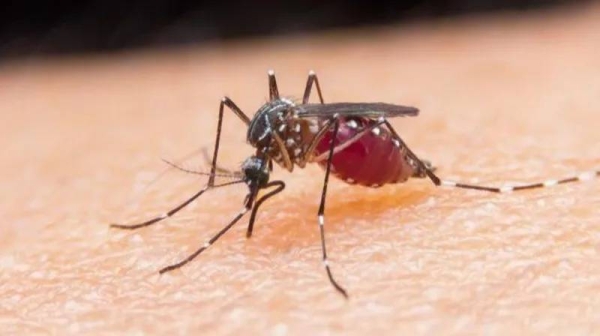Egypt has achieved a significant milestone in public health by becoming certified as malaria-free by the World Health Organization (WHO). This achievement, deemed “truly historic” by WHO chief Tedros Adhanom Ghebreyesus, marks the end of a centuries-old battle against the deadly mosquito-borne disease that once plagued the country. Egyptian authorities began their efforts to eliminate malaria nearly 100 years ago, and their success is now recognized with this certification. Malaria kills approximately 600,000 people globally each year, with the majority of cases occurring in Africa.
The certification of a country as malaria-free is granted when it is able to prove that the transmission of the disease has been interrupted for at least three consecutive years. Egypt joins a select group of countries, including the United Arab Emirates and Morocco in the WHO’s Eastern Mediterranean Region, that have successfully achieved this status. While this is a significant accomplishment, the WHO emphasizes that it is just the beginning of a new phase for Egypt in maintaining its malaria-free status. The country must continue to be vigilant in preventing the re-establishment of malaria transmission.
To achieve and maintain malaria-free status, countries must implement measures to prevent human-mosquito contact, which is essential for the spread of the disease. In Egypt, efforts to limit such contact began in the 1920s, with the ban on rice cultivation and agricultural crops near homes. While vaccines are now being utilized in some areas to combat malaria, monitoring the disease and preventing mosquito bites remain the most effective methods of prevention. The WHO’s certification of Egypt as malaria-free serves as a reminder of the importance of ongoing efforts to eradicate this disease.
The WHO has praised the Egyptian government and people for their dedication and efforts in bringing an end to malaria, a disease that has been present in the country since ancient times. Egypt’s successful elimination of malaria demonstrates the country’s commitment to public health and the well-being of its population. Achieving malaria-free status is a significant milestone not only for Egypt but also for the global fight against this deadly disease. With 44 countries and one territory having reached this milestone, the WHO’s certification of Egypt adds to a growing list of success stories in the battle against malaria.
The fight against malaria is ongoing, and countries must be prepared to address any potential threats to the re-establishment of the disease. The WHO warns that maintaining malaria-free status requires continued vigilance and strong public health measures. Egypt’s successful certification as malaria-free is a testament to the country’s ability to effectively control and eliminate the disease. By remaining alert and proactive, Egypt can ensure that its population remains protected from the threat of malaria. The WHO’s recognition of Egypt’s achievement serves as a reminder of the importance of sustained efforts in the global fight against malaria.
In conclusion, Egypt’s certification as malaria-free is a significant milestone in the country’s public health history. This achievement highlights Egypt’s dedication to eliminating a disease that has plagued the country for centuries and serves as a beacon of hope in the global fight against malaria. With continued vigilance and strong public health measures, Egypt can maintain its malaria-free status and protect its population from this deadly disease. The WHO’s certification of Egypt demonstrates the country’s commitment to public health and serves as a reminder of the importance of ongoing efforts to eradicate malaria on a global scale.










